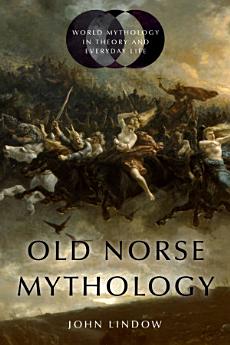Old Norse Mythology
ธ.ค. 2020 · Oxford University Press
eBook
192
หน้า
family_home
มีสิทธิ์
info
reportคะแนนและรีวิวไม่ได้รับการตรวจสอบยืนยัน ดูข้อมูลเพิ่มเติม
เกี่ยวกับ eBook เล่มนี้
An innovative and accessible overview of how ancient Scandinavians understood and made use of their mythological stories. Old Norse Mythology provides a unique survey of the mythology of Scandinavia: the gods Þórr (Thor) with his hammer, the wily and duplicitous Óðinn (Odin), the sly Loki, and other fascinating figures. They create the world, battle their enemies, and die at the end of the world, which arises anew with a new generation of gods. These stories were the mythology of the Vikings, but they were not written down until long after the conversion to Christianity, mostly in Iceland. In addition to a broad overview of Nordic myths, the book presents a case study of one myth, which tells of how Þórr (Thor) fished up the World Serpent, analyzing the myth as a sacred text of the Vikings. Old Norse Mythology also explores the debt we owe to medieval intellectuals, who were able to incorporate the old myths into new paradigms that helped the myths to survive when they were no longer part of a religious system. This superb introduction traces the use of the mythology in ideological contexts, from the Viking Age until the twenty-first century, as well as in entertainment.
เกี่ยวกับผู้แต่ง
John Lindow is Professor Emeritus in the Department of Scandinavian at the University of California, Berkeley.
ให้คะแนน eBook นี้
แสดงความเห็นของคุณให้เรารับรู้
ข้อมูลในการอ่าน
สมาร์ทโฟนและแท็บเล็ต
ติดตั้งแอป Google Play Books สำหรับ Android และ iPad/iPhone แอปจะซิงค์โดยอัตโนมัติกับบัญชีของคุณ และช่วยให้คุณอ่านแบบออนไลน์หรือออฟไลน์ได้ทุกที่
แล็ปท็อปและคอมพิวเตอร์
คุณฟังหนังสือเสียงที่ซื้อจาก Google Play โดยใช้เว็บเบราว์เซอร์ในคอมพิวเตอร์ได้
eReader และอุปกรณ์อื่นๆ
หากต้องการอ่านบนอุปกรณ์ e-ink เช่น Kobo eReader คุณจะต้องดาวน์โหลดและโอนไฟล์ไปยังอุปกรณ์ของคุณ โปรดทำตามวิธีการอย่างละเอียดในศูนย์ช่วยเหลือเพื่อโอนไฟล์ไปยัง eReader ที่รองรับ






